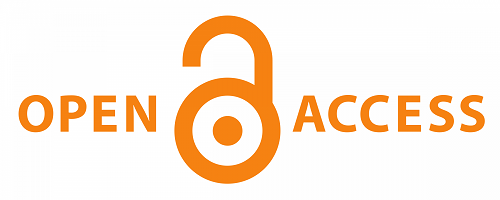Kompetensi Kepemimpinan Kepala Sekolah di Pendidikan Sekolah Dasar
DOI:
https://doi.org/10.70294/juperan.v3i01.400Kata Kunci:
Leadership, Competence, HeadmasterAbstrak
The leadership skills of school principals in basic education show that school principals have a strategic role in developing teacher professional development. School leaders must be able to lead school management and establish appropriate vision, mission, educational goals, strategies and targets. School principals must also be able to manage learning input, organize the learning process, and produce learning output. In addition, school leaders must have skills as educators, managers, administrators, supervisors, leaders, innovators and motivators. School principals need to have a clear vision and mission, have professional teachers, have a comfortable school environment, have strong school leadership, have an effective curriculum, and involve the community in managing the existing school. Good leaders can describe an inspiring vision and help others understand how they can contribute to achieving that goal. By providing encouragement, rewards, and constructive feedback, leaders can increase team member morale and commitment. Leaders can identify team members' strengths and weaknesses, coach or mentor them, and create an environment conducive to growth and learning. An effective leader can create an inclusive work culture that encourages open communication and fosters effective collaboration.
Unduhan
Referensi
Ibrahim, M. S., & Wahab, J. A. (2012). Kepemimpinan pendidikan. Bangi: Universiti Kebangsaan Malaysia
Iskandar, I., & Lubis, L. (2020). Konsep Kepemimpinan Perpustakaan Perguruan Tinggi Di Era Digital (Sebuah Kajian Terhadap Gaya Kepemimpinan Transformasional). Jurnal Ilmu Perpustakaan (Jiper), 1(2). https://doi.org/10.31764/jiper.v1i2.1744
Bashori. (2017). Konsep Kepemimpinan Dalam Pendidikan Islam. HIKMAH: Jurnal Pendidikan Islam, 6(2), 156–192. https://ojs.staituankutambusai.ac.id/index.php/hikmah/article/view/54
Anggraeni, G. (n.d.). Dr. Ganung Anggraeni.
Fajrin, M. F., Nasuha, N., & Arsyam, M. (2020). Administrasi Kesiswaan Dalam Pendidikan. OSF Preprints, 1(1), 1–10.
Hayati, R., Armanto, D., & Kartika, Y. (2023). Kepemimpinan Pendidikan. Jurnal Manajemen Dan Budaya, 3(2), 32–43. https://doi.org/10.51700/manajemen.v3i2.450
Herawan, E. (2017). Kinerja Kepala Sekolah. Jurnal Administrasi Pendidikan, 5(1). https://doi.org/10.17509/jap.v7i1.6252
Julaiha, S. (2019). Konsep Kepemimpinan Kepala Sekolah. Tarbiyah Wa Ta’lim: Jurnal Penelitian Pendidikan Dan Pembelajaran, 6(3), 179–190. https://doi.org/10.21093/twt.v6i3.1734
Margareth, H. (2017). No Title طرق تدريس اللغة العربية. Экономика Региона,32.
Mujiono, I. (2018). Kepemimpinan dan Keorganisasian. Kepemimpinan Dan Keorganisasian, 53(9), 1689–1699.
Rahmawati, D., & Aliyyah, R. R. (2024). Kepemimpinan Demokratis : Persepsi Guru Sekolah Dasar.3, 3210–3231.
Seni, O. S. (2021). Kepemimpinan Pendidikan Di Sekolah. Atma Reksa : Jurnal Pastoral Dan Kateketik, 5(2), 25. https://doi.org/10.53949/ar.v5i2.119
Syariah, K. B., & Ilmu, G. (n.d.). Analisis struktur kovarian pada indikator terkait kesehatan pada lansia yang tinggal di rumah dengan fokus pada persepsi kesehatan subjektif. september 2016, 1–6.
Usman, H. (2014). Peranan dan Fungsi Kepala Sekolah/Madrasah. Jurnal Ptk Dikmen, 3(1), 4–14. http://staffnew.uny.ac.id/upload/130683974/lainlain/Peranan dan Fungsi Kepala dan Madrasah Sekolah Jurnal Tenaga Kependidikan Vol. 3 No. 1 April 2014.pdf
Widyatma, Z. Y. (2014). Konsep Kepemimpinan Menurut Al-Mawardi. IJTIHAD : Jurnal Hukum Dan Ekonomi Islam, 8(1), 87–103.
Yusri, A. Z. dan D. (2020). 済無. Jurnal Ilmu Pendidikan, 7(2), 809–820.
Hasdiana, U. (2018). No Analisis Struktur Kovarian Indikator Terkait Kesehatan pada Lansia yang Tinggal di Rumah dengan Fokus pada Persepsi Kesehatan SubyektifTitle. In Analytical Biochemistry (Vol. 11, Issue 1). http://link.springer.com/10.1007/978-3-319-59379-1%0A










